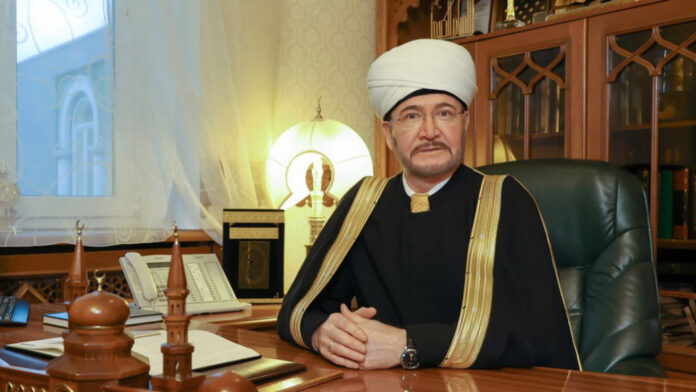In a dramatic reversal, Russia’s leading Islamic authority has withdrawn a controversial fatwa that permitted Muslim men to marry multiple wives. The decision came after intense criticism from both Russian officials and the public, who raised concerns over the conflict with the country’s secular laws. This move underscores the deep tension between religious freedom and state authority in Russia, especially in matters concerning family law.
The fatwa, issued by the Council of Scholars of the Spiritual Administration of Muslims of Russia (DUM) on December 17, had sanctioned polygamy for Muslim men, outlining specific conditions for such marriages. According to the document, men could enter into “religious marriages” with up to four wives, as long as they provided equal material support, maintained separate living spaces, and ensured equal time with each wife. These conditions were seen as an attempt to reconcile Islamic principles of marriage with the modern Russian social framework.
However, the fatwa immediately sparked outrage across Russia. While the document emphasized that religious marriages do not hold legal weight under Russian law, many critics argued that the ruling undermined Russia’s secular constitution and societal norms. The backlash came swiftly, with vocal condemnation from Russian lawmakers, legal experts, and members of civil society.
One of the first to respond was Kirill Kabanov, a prominent member of the Presidential Human Rights Council. Kabanov condemned the fatwa, accusing the DUM of attempting to impose Sharia law in Russia and disrespecting the Russian Constitution. He argued that any move to legitimize polygamy in Russia would be a direct violation of the country’s commitment to secularism and equality under the law.
The controversy also drew the attention of Nina Ostanina, the chair of the parliamentary family affairs committee. Ostanina stressed that polygamy directly contradicted Russia’s traditional moral values and secular ideals. She emphasized that such practices were incompatible with the state’s legal framework, which prohibits polygamy under the Russian Family Code.
Ildar Alyautdinov, the mufti of Moscow and one of the key figures behind the fatwa, sought to clarify that the document did not legalize polygamy in Russia. He insisted that it only served to clarify Islamic marriage practices within the Muslim community, noting that the fatwa did not have legal power in Russian courts. “Religious marriage has no legal weight in Russia,” Alyautdinov said, emphasizing that the fatwa was purely an internal matter for Muslim communities.
Despite these explanations, the fatwa continued to stir controversy. On December 22, Russia’s Prosecutor General’s Office officially notified the DUM that the fatwa violated Russian law, which forbids polygamy. The warning from the Prosecutor General’s Office, alongside mounting public criticism, led the DUM to reverse its decision just hours later. In a brief statement posted on Telegram, Shamil Alyautdinov, the chairman of the Council of Scholars, announced the withdrawal of the fatwa. “It is God’s will. The Council of Scholars sees no sense in joining a debate on the matter,” he wrote, signaling an end to the dispute.
The withdrawal of the fatwa highlights the ongoing challenge of balancing religious freedom with the legal framework of a secular state. In a country where approximately 10% of the population is Muslim, tensions between religious practice and secular law are not uncommon. The Muslim population in Russia is predominantly concentrated in regions such as Chechnya, Dagestan, and Ingushetia, where Islamic traditions hold significant cultural influence. However, these regions also operate within the larger context of Russian federal law, which enforces strict regulations on marriage and family life.
The controversy over polygamy also touches on broader issues of governance and minority rights in Russia. The Russian government has long faced criticism for its handling of religious and ethnic minorities, particularly in Muslim-majority regions. While the Kremlin has generally allowed a degree of religious freedom, it has also sought to ensure that religious practices do not conflict with national laws, particularly those relating to gender equality and family structures.
The episode also brings to light the complex nature of Russian identity and the place of Islam in Russian society. While Muslims in Russia have generally adhered to the country’s secular laws, there are growing concerns about the influence of conservative Islamic thought, particularly in the North Caucasus. Some scholars argue that the tension between Islamic traditions and Russian law is becoming more pronounced as the Muslim population in Russia continues to grow, particularly in urban areas like Moscow and St. Petersburg, where many migrant workers from Central Asia have settled.
For now, the fatwa’s withdrawal seems to have resolved the immediate controversy. However, it raises important questions about the future of religious freedom in Russia, particularly regarding the extent to which Islamic practices can be reconciled with Russian law. The episode is also a reminder of the delicate balance that must be maintained between respecting cultural traditions and upholding national legal norms.

